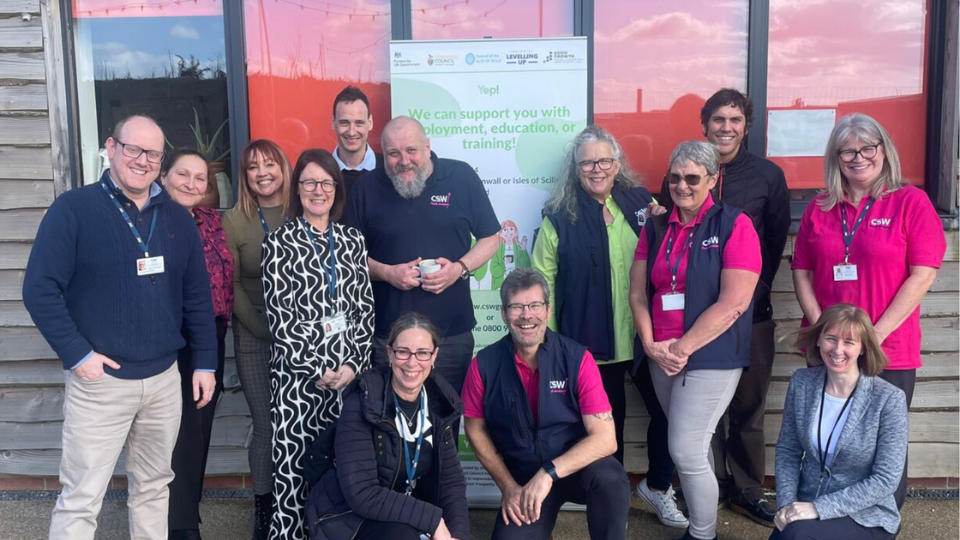Unlike the other devolved nations of the UK, England has never had an all-aged careers service. Instead, some services are aimed at young people (schools are responsible for access to independent careers guidance for students) and other services are aimed at adults. Beyond this, other providers are doing excellent work, especially for young people, but under various names and brands – local authorities still provide some services to schools and there are also government-led services, costed services and private providers, including Education Development Trust. This concoction of providers makes the current careers landscape perplexing – as pointed out in the government’s policy paper last year.
Timing is critical in the provision of career guidance
Research conducted by Education and Employers and the OECD shows that children as young as six or seven start to make choices about what they can and cannot do in the future based around gender, race and background. The timing and provision of appropriate career guidance at primary school is therefore critical to ensure children are not negatively influenced by stereotypes and do not restrict their options or future career pathways too early.
Careers support is most consistently delivered during young people’s key life stages, such as in primary school, secondary school and higher education, but this is not always connected to transition points before or after. For example, secondary schools could benefit from connecting with their feeder primary schools to help build a careers journey for pupils that continues to build through key transition points. Also, while career guidance in school can increase students’ understanding of their options and build career management skills, this is not often followed up by the support necessary to secure desired jobs post-education and training.
A lack of ‘personal guidance’ available for most age groups and a continued focus in the latter part of school on traditional higher education options also leads to many young people not being fully informed of their options at the right time. Recent research by the Sutton Trust shows that pupils are four times less likely to say they have received substantial guidance on apprenticeships than university.
As the delivery partner of the Apprenticeship Support and Knowledge programme (ASK), we know that impartial services at the right time can transform how students think about their options, and empower them knowledge and choice. Transition points are critical, and a more connected system would support individuals to better navigate life changes and receive logical, timely building blocks of guidance. This is particularly true for vulnerable people not in employment, education or training (NEETs), for whom the current system can lead to particularly disjointed support.
What recent improvements have we seen careers service integration?
In recent years, we have started to see more connectivity within the provision of Careers Education, Information, Advice and Guidance (CEIAG) for young people in England. Notably, the Careers Enterprise Company (CEC) is taking a more holistic approach, working now across all eight Gatsby Benchmarks (the nationally recognised standards of excellent careers provision). They have also supported Careers Leaders to raise the profile of careers guidance in schools and colleges and are working hard to embed careers into the national curriculum.
From our experience with the West London Careers Hub, we know the CEC Careers Hub initiative is also helping to join up the fragmented landscape. The hubs are raising awareness of the different service offerings; providing practical support to schools around achieving the Gatsby benchmarks; and developing a framework for connections with local and national employers. The CEC is also cognisant of the potential for greater national level linkages to enable hub leads to share practice and develop thinking.
In line with this progress within youth provision, we are advocating for increased alignment between youth and adult services, such as between the Careers Enterprise Company and the National Careers Service. More collaboration via an all-aged system would have myriad benefits to both areas, including respective information sharing, shared resources, joint contacts and approaches. Even within youth provision, there is room for improvement and investment, particularly within personal careers guidance – each school remains individually responsible for finding and paying for this, resulting in unequal opportunity and access in different areas.
The National Careers Strategy is under review, and it is likely to address this issue of fragmentation and consider a move towards an all-aged careers system. The Education (Careers Guidance in Schools) Bill is also currently passing through parliament, aiming to extend the access to careers guidance in secondary schools from Year 8 to Year 7 students and helping to bridge the gap from primary school. Based on our experience in CEIAG delivery, EdDevTrust supports these moves towards a more joined-up service.
The benefit of a continuous careers guidance journey
Despite some progress in connectivity across the sector, there are currently limited linkages between young people’s services and higher education institutions or Local Authorities, and between graduate careers services, jobcentres, and nationally available careers support.
It is time to prioritise high quality, timely and joined up careers support to provide a continuum of relevant support through each stage of a person’s life – including the transition areas. Individuals need access to different types of careers support at different times and it is critical that support provided complements rather than duplicates other provision. This must also include strengthening links with employers to boost young people and adults’ understanding of the labour market, sectors and trends, develop relevant skills for the workforce, and fuel economic growth.
Support should be mapped against the different needs of an individual over time – not just for the period that they are in school, at a jobcentre or in training. As a leading careers service provider, Education Development Trust supports the development of an all-aged careers service and we hope the following recommendations will help others working to build an effective journey of careers support for people in England.
Our recommendations to policymakers:
- Leverage the opportunity of the adult careers team now operating within Department for Education (DfE) to consider careers education and guidance from primary to adult; for DfE to be the umbrella organisation that joins policy and practice
- Better align DfE services (CEC and school activities) and Department for Work and Pension services (jobcentre and school advisers) to avoid duplication
- Ensure equitable access in all areas of England to personal careers guidance by increasing government funding for this area and ensuring separation from school budgets
- Ensure existing provision is joined up, including provision for vulnerable groups
- Increase use of destinations information collected by schools and local authorities to provide support through to national careers services
- Increase sharing of Labour Market Information, resources, intelligence and contacts between CEC and other provision
- Involve employers throughout and encourage more businesses to get involved by making the process for their engagement easier
- Recognise the role of teachers and careers leaders in schools, giving them the tools and support to continue good progress in embedding careers across a whole school approach
- Recognise parents and carers as key influencers and further embed the role of family members across careers support and lifelong learning
- Recognise the CEIAG profession and qualified careers advisors who upload the standards of the profession.








